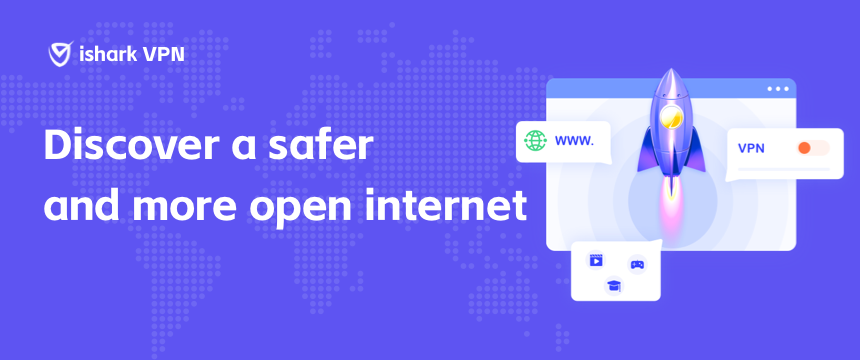The Role and Advantages of VPN in Game Development and Testing
ishark blog article
In game development and testing processes worldwide, network connectivity and data security are crucial.
Virtual Private Networks (VPN), as secure and private network connection tools, offer convenience and protection for game developers.
This article analyzes how game developers use VPN for game testing, online matchmaking, and server management, exploring the convenience and security VPN provide in the game development process.

Applications of VPN in Game Testing
Global Online Testing: Game developers can use VPN to connect to servers located in different regions for global online testing.
This allows simulation of game experiences under different network environments and geographical locations, ensuring game stability and smoothness in various scenarios.
Highly Secure Data Transmission: VPN encrypt data transmission, protecting sensitive data generated during game testing, such as user information, game logs, etc., from hacker attacks and theft.
Virtual Local Area Network (VLAN) Testing: Using VPN, game developers can simulate game sessions of multiple players within a virtual LAN to test multiplayer game features and performance.
Advantages of VPN in Online Matchmaking and Server Management
Stable Online Experience: Game developers can use VPN to connect to dedicated servers, ensuring stable online matchmaking and latency control, providing a seamless online gaming experience.
Server Management and Monitoring: Through VPN, game developers can securely manage and monitor game servers remotely.
They can perform real-time monitoring, performance optimization, and troubleshooting to ensure server stability and reliability.
Protection against DDoS Attacks: VPN provide a certain level of DDoS attack protection by routing traffic to secure VPN servers, mitigating the risk of servers being targeted by DDoS attacks.
Convenience and Security of VPN in the Game Development Process
Remote Collaboration and Testing: Through VPN, game developers can collaborate and test remotely among team members in different geographical locations, improving efficiency and teamwork.
Protection of Intellectual Property: VPN encrypt data transmission, protecting game developers' intellectual property and sensitive information, preventing data leaks and infringement.
Anonymity and Privacy Protection: Using VPN connections, game developers can safeguard the privacy of their personal identities and locations, reducing the risks of tracking and monitoring.
Accelerated Downloads and Updates: By connecting to nearby high-speed VPN servers, game developers can expedite the download and update speeds of game development tools, resources, and patches.
Extended Applications of VPN in Game Development and Testing

In addition to the applications in game testing, online matchmaking, and server management, VPN also play significant roles and provide more advantages in game development and testing processes.
The following are the extended applications of VPN in game development and testing:
Pre-release Confidentiality: Maintaining the confidentiality of games before release is crucial for game developers. Using VPN can establish encrypted connections, preventing unauthorized access to sensitive game information and content.
Stable Remote Access: Game development teams may be distributed across different geographical locations, making remote collaboration and access essential. VPN offer secure and stable remote access, enabling team members to log in remotely to development environments, version control systems, and shared resources for collaborative work.
Multi-Region Server Deployment and Testing: For large-scale multiplayer online games (MMOGs) or global games, VPN assist game developers in deploying and testing game servers across multiple geographical locations. They can simulate player connections and network environments from different regions, ensuring server performance and stability worldwide.
Game Outsourcing and Collaborative Development: VPN provide secure connections for game developers to connect with outsourcing teams or partners, facilitating resource sharing and joint development. This remote collaboration model greatly enhances efficiency and resource utilization in game development.
Virtual Reality and Augmented Reality Game Development: Virtual Reality (VR) and Augmented Reality (AR) games require low latency and high-speed network connections. Using VPN ensures stable network connections, reducing latency in VR and AR games, and providing a smoother gaming experience.
Network Security and Anti-Cheating Measures: VPN offer an additional security layer, protecting game developers' development environments from network attacks and hacker intrusions. Additionally, VPN can help reduce the risks of cheating programs, improving game fairness and competitiveness.
Conclusion:
VPN play a significant role in game development and testing, offering convenience and security. Through VPN, game developers can conduct global online testing, online matchmaking, and server management, enjoying stable online experiences and data security.
Furthermore, VPN provide advantages such as remote collaboration, intellectual property protection, and privacy preservation, facilitating a smooth game development process.









